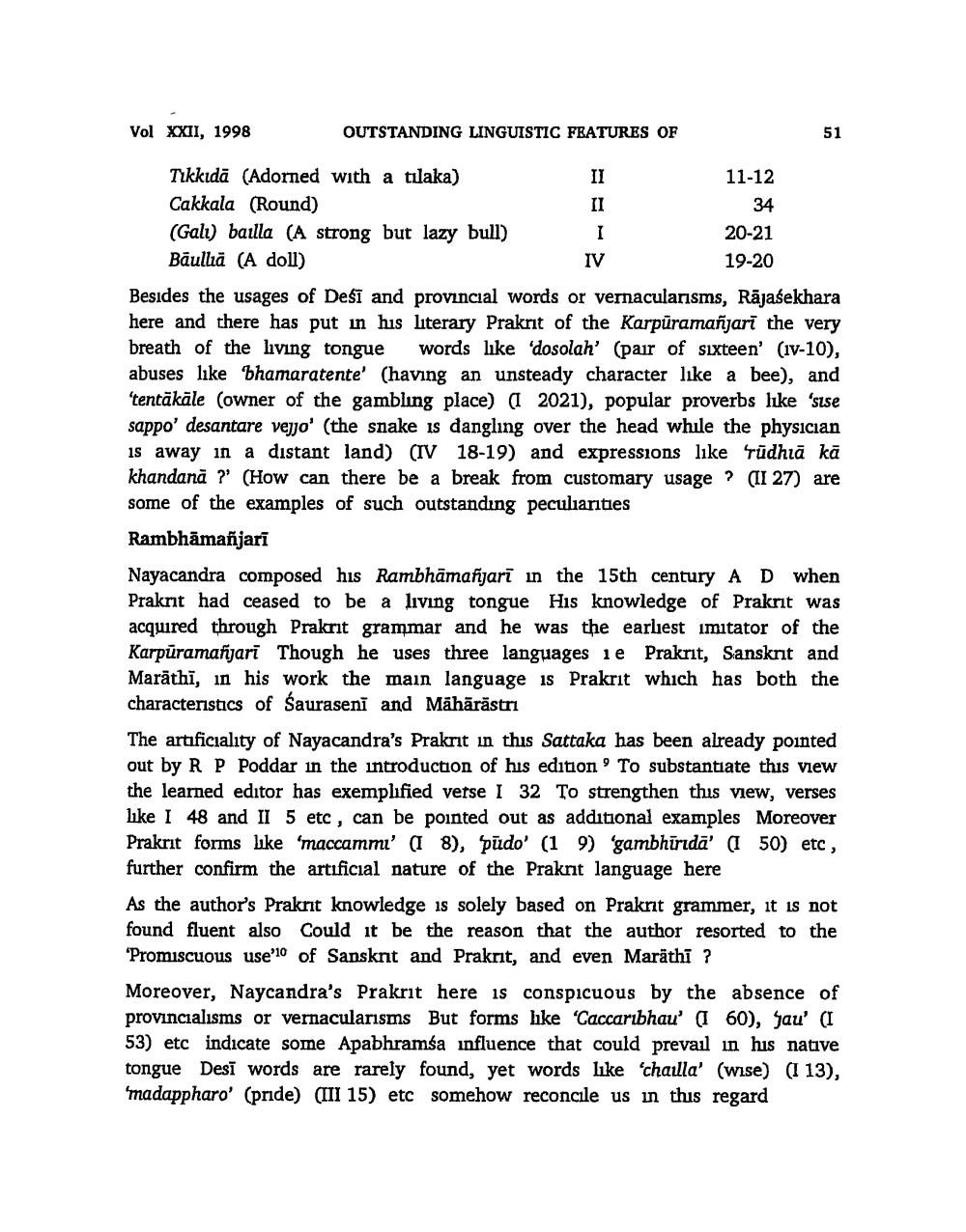________________
Vol XXII, 1998
OUTSTANDING LINGUISTIC FEATURES OF
Tikkidā (Adorned with a tulaka)
II
11-12 Cakkala (Round)
34 (Gali) bailla (A strong but lazy bull)
20-21 Bāulluā (A doll)
19-20 Besides the usages of Deśī and provincial words or vernacularisms, Rājasekhara here and there has put in his literary Prakrit of the Karpūramañjari the very breath of the living tongue words like 'dosolah' (pair of sixteen' (1V-10), abuses like bhamaratente (having an unsteady character like a bee), and 'tentākāle (owner of the gambling place) (1 2021), popular proverbs like 'suse sappo' desantare vejjo' (the snake is dangling over the head while the physician is away in a distant land) (TV 18-19) and expressions like rūdhā kā khandanā ?? (How can there be a break from customary usage ? (II 27) are some of the examples of such outstanding peculiarities Rambhāmañjari Nayacandra composed his Rambhāmañjarī in the 15th century AD when Praknit had ceased to be a living tongue His knowledge of Prakrit was acquired through Prakrit grammar and he was the earliest imitator of the Karpūramañjari Though he uses three languages 1e Prakrit, Sanskrit and Marāthī, in his work the main language is Prakrit which has both the characteristics of Sauraseni and Māhārästri The artificiality of Nayacandra's Prakrit in this Sattaka has been already pointed out by R P Poddar in the introduction of his edition. To substantiate this view the learned editor has exemplified vetse I 32 To strengthen this view, verses like I 48 and II 5 etc , can be pointed out as additional examples Moreover Prakrit forms like 'maccamm' (
18), pūdo' (19) 'gambhūrida' ( 50) etc, further confirm the artificial nature of the Prakrt language here As the author's Prakrit knowledge is solely based on Prakrit grammer, it is not found fluent also Could it be the reason that the author resorted to the "Promiscuous use'10 of Sansknt and Prakrt, and even Marāthī ? Moreover, Naycandra's Prakrit here is conspicuous by the absence of provincialisms or vernacularisms But forms hke Caccaribhau' ( 60), Jau' (I 53) etc indicate some Apabhramsa influence that could prevail in his native tongue Desī words are rarely found, yet words like 'chailla' (wise) (I 13), 'madappharo' (pride) (III 15) etc somehow reconcile us in this regard




